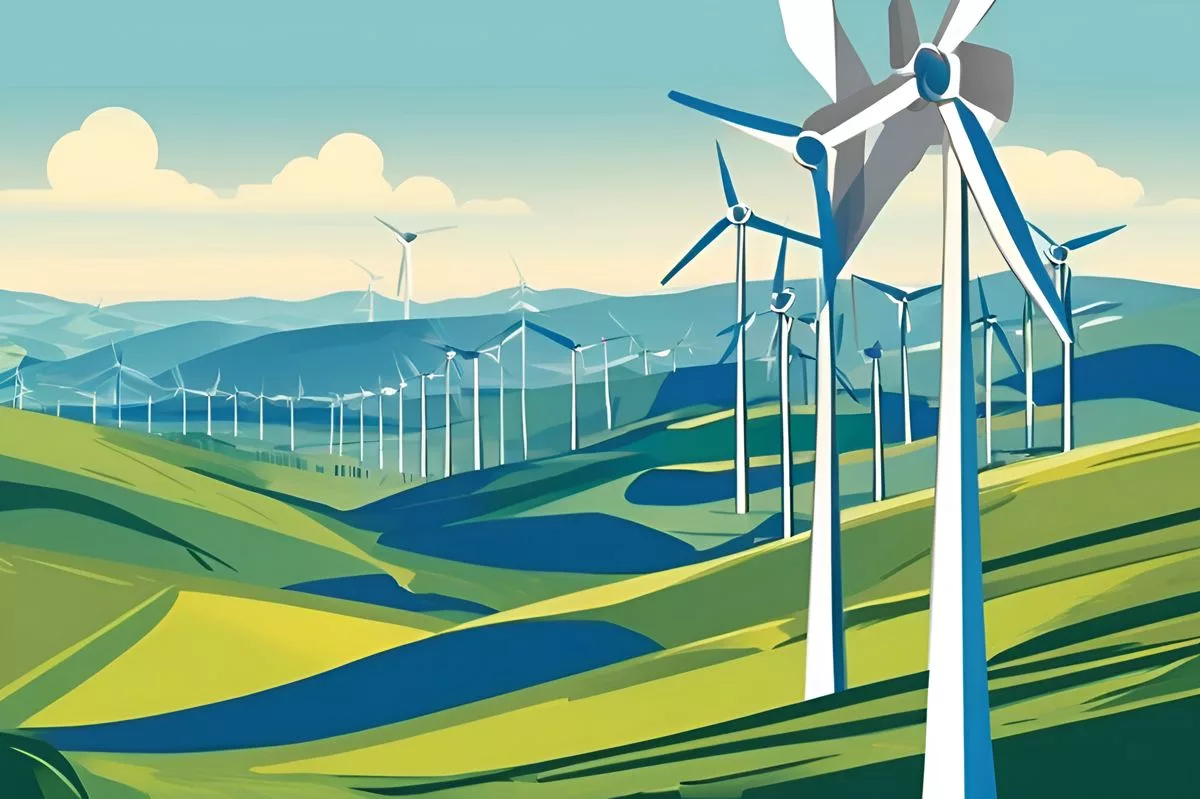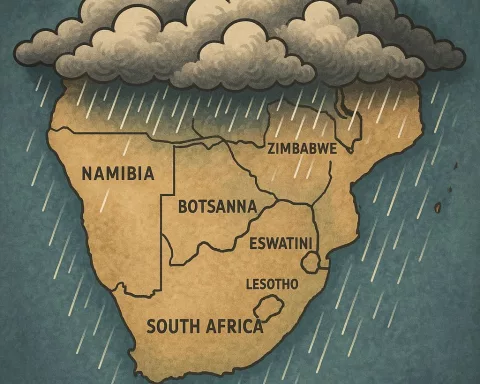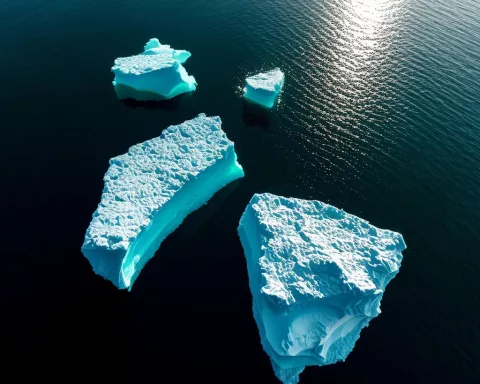South African President Cyril Ramaphosa spoke at the 2024 Climate Resilience Symposium in Tshwane, emphasizing the tangible impact of climate change, the economic consequences and opportunities, and the societal dimensions of the issue. He called for a managed transition to a low-carbon economy, investing in green infrastructure, and accelerating decarbonization efforts, while also highlighting South Africa’s commitment to attaining net zero emissions by 2050 and called for a nationwide effort to construct a climate-resilient country. Ramaphosa’s speech was a call to action for urgent collective action towards building a sustainable future.
South African President Cyril Ramaphosa adeptly navigated the intricate nexus between climate change, economic stability, and social equality during the 2024 Climate Resilience Symposium in Tshwane. He emphasized the tangible impact of climate change, the economic consequences and opportunities, and the societal dimensions of the issue. Ramaphosa called for a managed transition to a low-carbon economy, investing in green infrastructure, and accelerating decarbonization efforts. He also highlighted South Africa’s commitment to attaining net zero emissions by 2050 and called for a nationwide effort to construct a climate-resilient country.
Centered in the lively city of Tshwane, South Africa, the grave implications of climate change were manifestly experienced during the 2024 Climate Resilience Symposium. It was at this critical juncture that President Cyril Ramaphosa adeptly navigated the intricate nexus between climate change, economic stability and social equality.
The Tangibility of Climate Change Impact
The President initiated the discourse by addressing the very palpable effects of climate change on South Africa. He skillfully directed attention towards recent storms that caused calamity in the Western Cape, painting a vivid picture of a region in shambles with homes, communities, businesses, and infrastructure in ruins. The storms had nationwide repercussions as they disrupted activities at the Port of Cape Town, the country’s second largest container terminal. Ramaphosa argued that the financial fallout from these events emphasized that climate change is not just an environmental issue, but one deeply rooted in the economic, social, and developmental structures of society.
Climate Change: Economic Consequences and Opportunities
Ramaphosa delved deeper into the economic implications of climate change, highlighting the amplified cost of conducting business, the stunting of job creation, and the consequent pressure on public finances. He discussed the economic risks posed by climate change, from damage to physical infrastructure to the need for increased government borrowing. However, he expressed optimism, emphasizing the crucial role of the National Treasury in utilizing the just transition – a progression towards an inclusive, resilient and sustainable economy – as a tool to tackle these challenges.
Climate Change: An Unfair Burden
The President then shifted his emphasis to the societal dimensions of climate change. He created a touching portrayal of the Global South, which is often the most susceptible to the negative effects of climate change, despite contributing the least to global emissions. His advocacy for enhanced systems for adaptation and mitigation, developing resilience in communities, and accelerating decarbonisation efforts was rooted in a quest for justice and inclusivity.
The Decarbonisation Dilemma
Ramaphosa acknowledged South Africa’s historical dependence on coal and admitted that the carbon-intensity of the economy is no longer sustainable. While coal offered a competitive edge in the past, it now presents considerable risks as the global community pivots towards greener economies. Affirming his dedication to a managed transition to a low-carbon economy, he underlined the significance of timing the transition to protect the economy and guarantee stability.
Green Infrastructure: An Investment for the Future
Ramaphosa made a persuasive argument for investing in green infrastructure, renewable energy, and climate adaptation strategies. While acknowledging the potential high cost of these investments, he emphasized the necessity of financial prudence and prioritization. The solution, he suggested, lies in striking a balance between equipping the country to withstand climate threats and capitalizing on the opportunities offered by the transition to renewable energy.
South Africa’s Net Zero Emissions Commitment
South Africa’s pledge to attain net zero emissions by 2050 serves as a testament to its determination to fight climate change. Ramaphosa detailed the country’s revised Nationally Determined Contribution, praising its equilibrium between developmental requirements and economic realities. He also highlighted the role of carbon tax as a vital part of the mitigation strategy, capable of encouraging companies to adopt cleaner technologies and generating revenue for climate initiatives.
Forging a Path Towards Climate Resilience
The President’s speech concluded with a rousing call to action. He called for a nationwide effort that includes government, business, labor, civil society, communities, and international partners to construct a climate-resilient country. He underscored the need for innovation in leveraging both public and private finance to achieve climate goals, and the crucial part of creating an dependable project pipeline to secure funding from international sources.
In a nutshell, the President’s speech at the Climate Resilience Symposium 2024 was both a sobering analysis of the challenges climate change poses and an optimistic projection of a resilient, greener future. The overarching theme was one of urgency, resilience, and collective action, painting a picture of a nation primed to confront the challenges ahead and in doing so, build a sustainable future for successive generations.
1. What did President Cyril Ramaphosa emphasize during the 2024 Climate Resilience Symposium in Tshwane?
President Cyril Ramaphosa emphasized the tangible impact of climate change, the economic consequences and opportunities, and the societal dimensions of the issue.
2. What did Ramaphosa call for in regards to a transition to a low-carbon economy?
Ramaphosa called for a managed transition to a low-carbon economy, investing in green infrastructure, and accelerating decarbonization efforts.
3. What did Ramaphosa say about the societal dimensions of climate change?
Ramaphosa created a portrayal of the Global South, which is often the most susceptible to the negative effects of climate change, despite contributing the least to global emissions. He advocated for enhanced systems for adaptation and mitigation, developing resilience in communities, and accelerating decarbonisation efforts was rooted in a quest for justice and inclusivity.
4. How did Ramaphosa address South Africa’s historical dependence on coal?
Ramaphosa acknowledged South Africa’s historical dependence on coal and admitted that the carbon-intensity of the economy is no longer sustainable. While coal offered a competitive edge in the past, it now presents considerable risks as the global community pivots towards greener economies.
5. What did Ramaphosa suggest about investing in green infrastructure?
Ramaphosa made a persuasive argument for investing in green infrastructure, renewable energy, and climate adaptation strategies. He emphasized the necessity of financial prudence and prioritization, striking a balance between equipping the country to withstand climate threats and capitalizing on the opportunities offered by the transition to renewable energy.
6. What did Ramaphosa call for in his conclusion to the speech?
Ramaphosa called for a nationwide effort that includes government, business, labor, civil society, communities, and international partners to construct a climate-resilient country. He underscored the need for innovation in leveraging both public and private finance to achieve climate goals, and the crucial part of creating a dependable project pipeline to secure funding from international sources.












